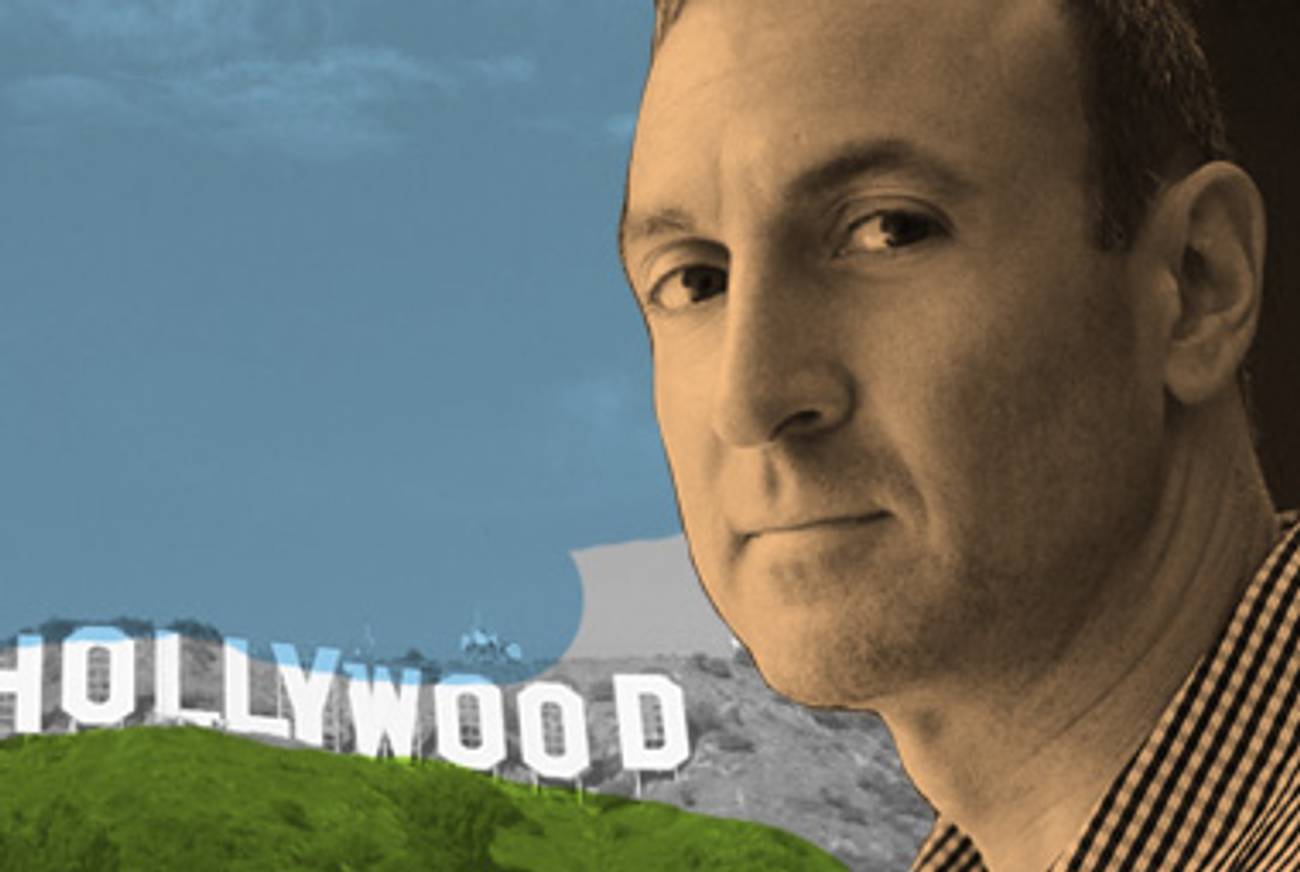Smells Fishy
Chandler Burr’s new novel is an anti-Jewish tirade




Chandler Burr is the perfume critic of The New York Times, the author of three books—one on sexual orientation, two on scent—and a longtime writer of unproduced screenplays. His fiction debut, You or Someone Like You, has received considerable—in one case, almost fetishistic—attention and praise. But what begins as a fresh-voiced, lively Hollywood fantasy ends as something else entirely: a freakish, tiresome anti-Jewish tirade.
British Anne and Jewish Howard, who met in an English class at Columbia, have forged a marriage based on literary quips. Howard is tapped to become a Shakespeare professor at UCLA, as well as a Hollywood studio head. [Full disclosure: I am a professor of Shakespeare, among other subjects, at UCLA, and this has never happened to me.] Anne, abandoned to their mansion in The Hills with her volumes and servants, founds a book club for top Industry players.
With Anne as narrator, the novel proceeds as a part-real-life, part-fictitious study of the bicoastal cultural elite. Made-up characters mix with over fifty real Hollywood bigwigs and leaders of the New York intelligentsia—almost every one of them Jewish. Subplots and dialogue are extracted from actual New Yorker essays—none written by Burr himself. The narrative is interrupted by lengthy tangents of lit-crit exegesis—the author’s own, clearly, ventriloquized by Anne—on Blake, Austen, Auden, and other greats.
As Anne’s star rises, her family falls apart. Son Sam is rejected by a fringe Jerusalem yeshiva for being only half-Jewish, then comes out as gay. Howard turns depressive, distant—and, suddenly, Hasidic. In the attempt to win Howard back, Anne mounts a campaign to have quotations relayed to him elegizing gay love, deriding ethnic identity, and promoting the Western canon as replacement for sacred text. Moving out, he critiqued his life with Anne as bloodless and shallow. And, indeed, so it seems: the two communicate only in snappy repartee, and the smug, rigid Anne, although framed by the tale as heroine, comes off as a cold fish. What she lauds as universal culture is her own culture, with no insight into why Howard’s might be of value, and no notion that love might entail respect for difference, or compromise.
In a climactic move the novel treats as bold and brave, Anne uses her platform at a major Hollywood event to dismiss the entirety of Jewish history and doctrine as a “Nazi” program of “racial purity.” Hollywood, creeped out by the increasingly sociopathic Anne, closes ranks—proving itself a spineless Semitic cabal, on scant previous evidence. Howard returns to support her cause and to resume the life, no less empty, he tried to leave behind. Anne is thus vindicated by the narrative, but the unpleasant implications of what it asserts remain.
In his foreword to the novel, Burr writes that Sam’s Jerusalem experience was based on his own as a young man. With authorial distance, the issues raised—historic oppositions of Euro-Britannic “high” arts to the Jewish vernacular; exclusion and belonging; the life of the mind versus the ways of faith—could have been intriguing. Instead, Anne’s literary flights are too belabored to impress as erudition. The Hollywood parody veers from puckish play into vendetta. The spurious conspiracy theory, rants, rages, and obsession belong less in a novel than in Mel Gibson’s clinic. This is a novel of ideas—including dumb ones. Few hold up beyond the book as soapbox. Posturing and score-settling outstrip artistry.
As perfume critic, Burr should have a nose for beauty. He writes lyrically, and, for the most part, entertains. You or Someone Like You starts out cute, but ends up ugly. It stinks.
Shelley Salamensky is a professor of literature, theatre, and film at the University of California, Los Angeles. Her most recent essays have appeared in Nextbook, Guilt & Pleasure, and The Believer.
Abigail Miller is Tablet Magazine’s art director.
Shelley Salamensky is a scholar and writer. Her work has previously appeared in Tablet, as well as The Paris Review, The Wall Street Journal, and The New York Review of Books, and elsewhere.